-
Tips for Kindergarten Parents
Even if your child has attended structured early childhood education programs, the kindergarten year is an exciting milestone, as it’s considered the first year of formal schooling. Your child’s education in Pembroke Pines encompasses important academic skills like math and literacy, but it also involves personal growth and socio-emotional development. Encourage your child to reach for the stars, but have reasonable expectations and give your son or daughter the freedom to simply enjoy childhood.

Nurture your child’s independence.
When your son or daughter reaches kindergarten age, he or she will start displaying greater independence. Encourage this by teaching important self-care skills. Teach your child how to button up clothes, tie shoes, and wash hands. Position the milk jug and snacks on a lower shelf in the fridge, and let your child serve him-or herself. Spills are to be expected, as your child is still learning self-care skills.
Read every day.
Reading with your child every day is one of the most impactful ways to support your child’s education. It lets your son or daughter naturally absorb the rhythm and structure of sentences, and simply get absorbed in the magical world of stories. Reading with your child nurtures the close bond you share with him or her. It sparks your child’s imagination and entices his or her curiosity.
Create a musical home.
Every child has artistic tendencies, and nurturing them supports your child’s self-esteem and sense of wonder. Music also encourages a strong vocabulary, better memory, and dynamic social skills. Sing with your child in the car, or start a band in the kitchen by tapping on overturned pots and drinking glasses. Talent is not important, but enthusiasm is.
Talk often.
When your child was an infant, you probably learned that talking to him or her frequently supported healthy development. During the kindergarten age, this fact still holds true. Encourage your child’s oral language skills by actively listening to him or her, asking open-ended questions, and letting your child know that what he or she says is important to you.
-
Answering Common Questions About Pre-Kindergarten Programs
Pre-kindergarten programs are offered to children in the year before they enter kindergarten. Children will be around four years old, which is when they are beginning to develop a better understanding of the world around them. Pre-kindergarten programs in Pembroke Pines can foster their understanding and provide the necessary academic and social education to help children succeed. Let’s take a look at the answers to some common questions about pre-kindergarten programs.
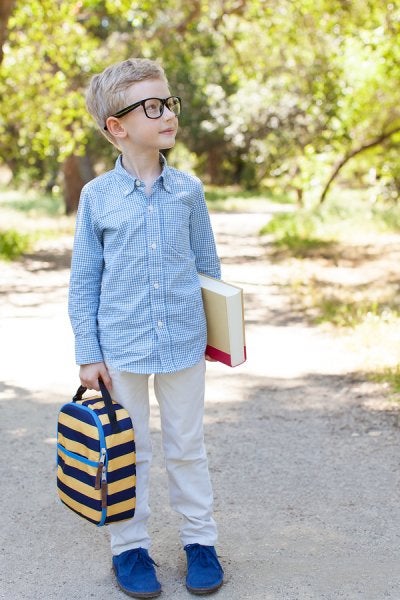
Do they provide academic value?
Pre-kindergarten programs are meant as a stepping stone into kindergarten education. These programs help children develop the much-needed foundations of kindergarten math and reading skills. Children in pre-kindergarten programs will have the opportunity to learn pre-math and pre-reading skills that will also encourage them to take an active role in the world around them.
Do they provide active play?
Active play is essential for growing children, because it encourages the development of gross and fine motor skills. Gross motor skills include larger movement skills, such as throwing a ball or performing somersaults. Fine motor skills include smaller movements needed for future schooling, such as holding a pencil, cutting with scissors, and copying basic shapes. Pre-kindergarten programs will feature a lot of active play to encourage these skills.
Do they provide social interaction?
Pre-kindergarten is a great place for children to develop and continue developing their social skills. Pre-kindergarten programs provide many opportunities to learn teamwork, communication, and social expression. This is a critical time in children’s social development, because it’s when children begin to cement their understanding of right and wrong and how to respond to other kids and adults.
Are they required education?
Pre-kindergarten programs are typically voluntary, and they may be classified as voluntary pre-kindergarten, or VPK. Though voluntary, VPK is an important program for children entering kindergarten. New education standards have made kindergarten curriculum more intense, and children must be fully prepared before entering their kindergarten class. Pre-kindergarten programs offer children the academic education, social interaction, and the foundational skills they will need to succeed in kindergarten and beyond.
-
Easy Tips for Improving Attention Spans in Pre-K Students
Attention is a challenging issue for parents and teachers of pre-K students alike. In the pre-K classroom, working on attention spans is part of the learning process, as students become more adept at learning the differences between work time and playtime. Attention span issues can be even more challenging today, when young children are accustomed to entertainment with digital devices and constant distractions. Although the ability to be attentive naturally increases with age, there are things you can do to help your student in pre-K in Pembroke Pines . Try these tips to boost the attention span of your pre-K student.
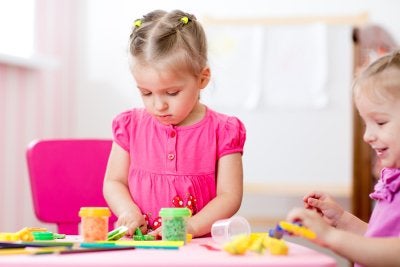
Reduce Distractions
Nearly anything can be a distraction when a young student is tackling a task he or she may not really want to do. Before your child has to concentrate on something, make sure he or she is well rested, not hungry or thirsty, and has used the bathroom. Don’t have the TV or music on, and keep digital devices tucked away. Give your child space and time to concentrate on one thing, and he or she will become more adept at tuning his or her attention to the right things.
Get Ready for the Day
If your child’s attention problems occur most often in the pre-K classroom, make sure he or she is ready for the day when you arrive at school. Avoid showing DVDs in the car, and eat breakfast at home when possible, instead of on the go. Put shoes on at home, rather than in the car. The ride to school should be a calm time when you can help your child focus on getting ready for school. Watching a DVD while frantically eating breakfast and rushing to finish getting dressed in the car will result in your child arriving at school feeling anxious and exasperated instead of ready to sit down in the classroom.
Have Realistic Expectations
As a general rule of thumb, the number of minutes your child should be able to pay attention is his or her age in years multiplied by two to five . Anything outside of that is unrealistic. Try breaking tasks up into timed chunks that fit into these windows so your child doesn’t become frustrated, which negatively impacts attention spans.
-
The Benefits of Pre-Kindergarten
When your child is about four years old, it’s time to enroll him or her in a pre-kindergarten program in Pembroke Pines . Pre-kindergarten introduces children to structured learning activities within a classroom environment. Not only do they learn essential pre-academic skills, pre-k students also grow in emotional and social maturity. If your child has already been attending preschool, then the transition to pre-kindergarten will be a natural and easy one to make.
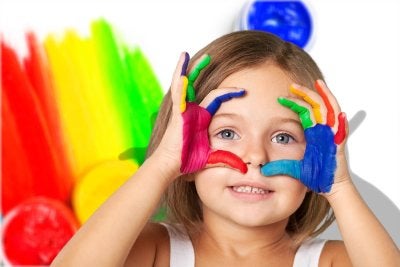
Independence
For parents of four-year-olds, it’s often difficult to accept that their little ones are developing their own independent identities. In fact, many parents often have a harder time adjusting to separation than their children do. Spending time in a school environment is an important step in every child’s development. Pre-kindergarten allows children to learn how to make their own choices (within reason) and thrive while away from home for a little while.
Socio-Emotional Maturity
Enrolling your child in a pre-kindergarten program will allow his or her socio-emotional intelligence to grow by leaps and bounds. All children need the life experiences that come from functioning as part of a small community. Through trial and error, and gentle guidance from the teacher, your child will learn how to interact with others in appropriate ways and how to enjoy group work as well as independent work. Your child will develop critical friendship skills like taking turns and sharing, and important classroom skills like how to capture the teacher’s attention appropriately. Being a member of a classroom community enables your child to practice his or her verbal communication skills with peers and adults.
Academic Foundation
Another primary benefit of enrolling your child in a pre-k school is to give him or her a solid foundation for lifelong learning. At this critical stage in a child’s development, he or she truly wants to learn. Your child is curious about the world and how it works, and pre-k nurtures this curiosity to encourage your child to develop a lifelong love of learning. Of course, your child will also learn crucial pre-academic skills that will prepare him or her to excel in kindergarten, first grade, and beyond.
-
What Is Pre-Kindergarten?
Has your child recently turned 3 or 4? If so, then you may be wondering when she should begin school. If your child is still too young for kindergarten, then you may benefit from enrolling her in pre-kindergarten . Continue reading to learn about what to expect when your child joins pre-k in Pembroke Pines.
Pre-kindergarten programs consist of daily activities and classes that are designed for children around the age of 4. Focused on providing fun, fostering creativity, and preparing children for future academic success, pre-k activities can include games, projects, and experiences that encourage children to enjoy learning and that teach early math, reading, language, and social skills.
Because pre-kindergarten introduces your child to a traditional academic environment, this type of program can help ensure her success in later grades. At the same time, pre-k provides day care for children and can help acclimate your child to being away from her family for extended periods. For these reasons, enrolling her in a pre-kindergarten program can be highly beneficial for your child.
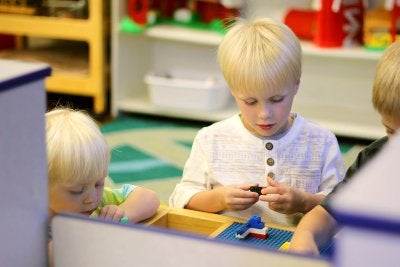
-
Helpful Learning Tips for Kindergarten
When you are preparing your child to begin kindergarten, you may find yourself wondering what you can do to help him succeed. Did you recently enroll your child in kindergarten in Pembroke Pines? If so, then watch this video for tips on helping him learn during this time.
One of the best ways to ensure that your child is available to absorb his kindergarten curriculum is to develop a schedule that allows him 10 to 12 hours of sleep per night and to provide him with plenty of nutrition. Also, speaking with your child and having extended conversations with a back and forth exchange is a great way in which to improve his kindergarten readiness.
-
Teaching Your Child to Tie Shoes
Parents looking for an early childhood learning center in Pembroke Pines may also be looking for ways to teach their child new tasks. How to tie shoes is a part of early childhood education that most children learn around the time they are in pre-k or kindergarten . Watch this video for a way to teach your child to tie shoes.
One shoe-tying method is called loop, swoop, and pull. Begin by tying a knot. Next, loop one of the laces together and pinch it between the fingers of one hand. Then, swoop the second lace around the loop and tuck it into the space beneath the loop. Lastly, pull the lace that you swooped through the hole beneath the loop. Tug each of the two loops tight, and you’re done!
-
Healthy Snack Ideas Your Kids Will Want to Eat
Finding healthy, yummy snacks for kids to take to kindergarten is important, because snacks will help fuel your child’s learning and offer nutrition throughout the day. Whether you want an easy snack for home, or an on-the-go snack for kindergarten in Pembroke Pines , there are many different snack options.
As seen in the video, there are a number of tasty snacks suitable for growing children. Veggies and hummus is an easy snack that will hold up in your child’s lunch box during preschool or kindergarten. You can also give them low-fat string cheese and yogurt. These can be good on-the-go snacks, but they may require refrigeration. One of the best protein-filled snacks your child can eat is a hardboiled egg. Lastly, a sweeter, but still healthy snack, would be a waffle with peanut butter, bananas, and honey on top. This will help your kids get their protein and potassium requirements for the day.
-
Questions to Ask When You’re Choosing a Kindergarten Program
Although all kindergarten schools teach children basics like the alphabet, there are some crucial differences between a typical kindergarten and a high-quality early learning center in Pembroke Pines. Given the critical importance of early childhood education for your child’s future, it’s wise to invest some time in researching the right school for your child.
Is My Child Ready for Kindergarten?
Even if you select the best available kindergarten school for your child, he or she will only thrive there if he or she is ready for it. Kindergarten readiness can be difficult for parents to assess; consider talking to your child’s preschool teacher about whether he or she might be ready for the next step. It may seem counterintuitive that holding a child back an extra year would give him or her a head start, but in fact, enrolling a child in kindergarten before he or she is ready can adversely affect academic progress in kindergarten and the later grades. To determine if your child is ready for kindergarten, consider whether he or she has basic academic, gross and fine motor, and socio-emotional skills.
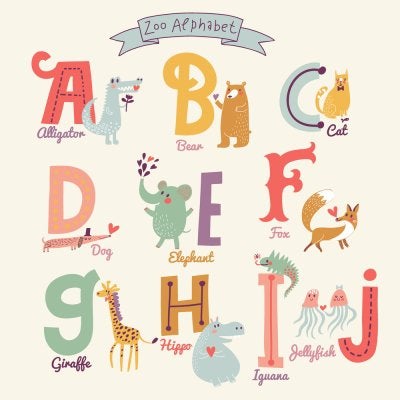 What does the Curriculum Offer My Child?
What does the Curriculum Offer My Child? When your child is ready for kindergarten, take a close look at the curricula of the schools you’re considering. Children benefit from a dynamic and engaging curriculum that gives them a foundation for success in first grade and beyond. Kindergarten curricula should include the basics of mathematic reasoning, language arts, geography, and science.
Is Afterschool Care Available?
Another question to consider when choosing a kindergarten school is whether your child will need afterschool care. If so, look for a kindergarten that offers age-specific afterschool groups supervised by professional, trained staff members. An ideal afterschool program for kindergarteners includes a designated time for homework and learning, along with time to relax and have fun with arts and crafts.
Does the School Have an Acceptable Safety Policy?
Safety is a top priority of parents, with good reason. Check the kindergarten’s website for a school safety policy or ask the representative during your tour. Before you select a kindergarten, make sure you know what the drop-off and pick-up policies are, and how the school will keep your child safe during outdoor play.
RECENT POSTS
categories
- Uncategorized
- Early Learning Center
- Pre-K
- Children
- Child Care Center
- Preschooler
- Preschool Blog Category | Tanglewood Academy
- Preschool Lunch
- Tanglewood Academy
- After-School Program
- Toddler School
- Early Childhood Education
- preschool activities
- pre-kindergarten
- childhood education
- pre-kindergarten programs
- Children’s education
- enrichment opportunities
- Kindergarten
- Nurturing Education Environment
- Toddler Care
- Child Separation Anxiety
- Toddlers
- Summer camp
- summer activities
- VPK
- Voluntary Pre-K
- Outdoor Activities
- Smart Strategies
- Tie Shoes
- Snacks
- Physical Activities
- Education
- Enrichment Activities for Kids
- Early Education Activities
- Preschool Curriculum
- Classroom Learning
- APPLE accreditation
- Language Comprehension
